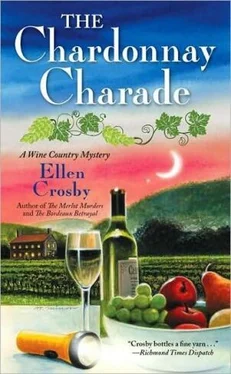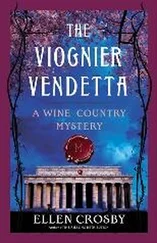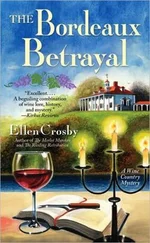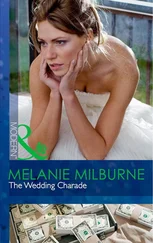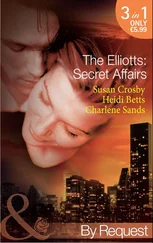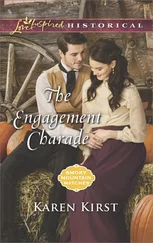“The Romeos are mad at Ross because they don’t believe that Jefferson Davis, who was a good and decent man, would be part of a conspiracy to assassinate Abraham Lincoln as that letter implies,” Joe said. “They see Ross as one more Yankee taking a potshot at the South. Doesn’t matter whether the letter is real or forged. Either way it’s going to stir up a hell of a debate and open old wounds. He’s turned into a modern-day Benedict Arnold as far as they’re concerned.”
“‘Give me liberty or give me death,’” Dominique quoted.
Joe and I exchanged glances. “That was Patrick Henry, honey,” he told her. Then to me he added, “One or two more study sessions and I’m sure she’ll have this nailed.”
When Atoka was founded in 1838 it was known as Rector’s Crossroads, probably in honor of the Rector family, who, more than one hundred years earlier, received one of the last British land grants for acreage along the banks of Goose Creek. What put our town on the map was the meeting held here on June 10, 1863, when Colonel John Singleton Mosby met in the woods near the old schoolhouse with the men who would become Company A of the 43rd Battalion, better known as Mosby’s Partisan Rangers.
In the 1890s, the U.S. postal service decided that “Rector’s X Roads” was too similar in name to nearby Rectortown—and they were founded first. So postal officials handed the town fathers a book of three-to five-letter place names they’d helpfully prepared for other towns in the same predicament. After some discussion, the town settled on Atoka. Although that name had already been picked, the place was in Oklahoma Indian Territory. With minimal concern about a mix-up in the mail delivery, Atoka was approved.
Less than twenty years later our post office had gone the way of the dodo bird, although the general store still rented out mailboxes for anyone who wanted Thelma Johnson to take care of their mail. Randy Hunter had one of those mailboxes.
I pulled in next to a postage-stamp-sized piece of asphalt Thelma called the “parking lot” on my way back to the vineyard. If Randy left town for a few days, his mail would still be there. And Thelma, who had a photographic memory when it came to her customers’ personal business, would probably remember down to the minute the last time he’d been in to pick up his mail.
The general store, a small single-story building whose white-painted wooden exterior could have used some sprucing up, sat at the junction of Mosby’s Highway and Atoka Road. The red neon “OPEN” sign in the store’s front window had said “OPE” for so long, it was now a landmark by which people gave directions. The two old-fashioned, low-tech gas pumps out front still required paying Thelma at the cash register after you got your gas. Though she could have modernized and gone electronic years ago, “pay and go” meant a lost opportunity to chat up her customers.
If the Romeos had their collective fingers on the pulse of Atoka and Middleburg life, Thelma—in the nicest possible way—had her hand wrapped gently but firmly around its throat. Even if you swore on the graves of ancestors to keep a bit of gossip or news confidential, she had an almost hypnotic ability to wrangle it out of you.
She was leaning on the counter by the cash register, engrossed in a magazine, when I walked in. The silver sleigh bells on the door jingled and she looked up and smiled. Dressed in baby pink from head to toe, she even wore matching pink bows in hair a shade of coppery red that God never intended any person to have naturally. She wore the usual tonnage of eye makeup behind enormous trifocals that always made her look slightly bug-eyed.
“Why, Lucille! What a pleasant surprise! I haven’t seen you for ages. Come and sit a spell.” She closed the magazine and clutched it to her chest so I could see the cover. A heartthrob with an unbuttoned shirt, tanning-salon tan, bedroom eyes, and the kind of heavy gold jewelry around his neck that Quinn favored. It had to be one of her soap opera stars. Thelma—who was pushing seventy-five—loved ’em young and virile.
“I think there’s still some coffee in the one of the urns,” she said. “Can I pour you a cup? I got a cranberry muffin left, too.” The stiletto heels of her pink mules clacked like the keys on Leland’s old typewriter as she crossed the room. I followed her, the rubber tip of my cane a muted echo.
She gestured to two wooden rocking chairs next to the glass case that held the fresh-baked muffins and donuts she had delivered every morning. Three coffee urns with signs that read “Regular,” “Decaf,” and “Fancy” sat on an adjacent table next to the bank of glass and gilt mailboxes.
“Thanks, but I just had a late lunch at the Inn. I’m fine, Thelma.”
“Now, you sit. That foot looks like it’s botherin’ you, Lucille. You’re limping more ’n usual. The Inn, huh? That’s interesting.”
I blushed and sat down.
She sat across from me and leaned forward, elbows resting on her knees. “Now tell me everything. ”
“Uh…”
“Why, Georgia, child! What did you think I meant? You’re the one who found her.”
“I’m sure you’ve heard everything already, Thelma.”
“Well”—she touched her hand to the back of her hair like she was primping—“I do like to keep up on what goes on. A person’s got to stay informed, Lucille. Especially in this day and age with all those terrorists running around here, there, and the other place.”
“Maybe there and the other place, but I doubt we’ve got too many terrorists in Atoka.”
“I wouldn’t be too sure, missy.” She sounded severe. “We get foreigners here all the time. Just today I met a nice young man who told me he originally came from the United Kingdom. That’s in England.”
“Young” in Thelma’s book was anyone under sixty.
“You mean Mick Dunne?”
“Why, yes. Ross Greenwood’s friend. Did you know he was best man at Ross’s first wedding? Apparently they go way back together. Roommates at some boarding school in Connecticut. Lordy, Stephanie took it so terribly hard when Ross left her for Georgia. I swear she still hasn’t gotten over it.” Thelma leaned closer. “And talking of Georgia, I heard tell she might have been having carnival relations with another man.”
“Pardon?”
“You heard me. Extracurricular s-e-x.”
I didn’t know whether to assume she knew about the autopsy or if she was referring to Randy’s affair with Georgia.
I feigned surprise. “I’m not sure what you’re talking about.”
She smiled like a satisfied weasel. “Oho! So it is true! Your face is the color of a Big Boy tomato, Lucille. Who was it?”
“I don’t know.” She wouldn’t believe that, either.
She didn’t. “Sure you do. Georgia was carrying on with Randy Hunter, wasn’t she?” Thelma sat back in her chair, rocking gently and watching me, head nodding like a bobble-head doll. “I thought so. I sure hope he doesn’t turn out to be the one who killed her. Even if he does know how to handle those chemicals you use at the vineyard. The ones with the ozone in them. That stuff’s terrible.”
“I heard about Randy and Georgia, too,” I admitted. “Even though I don’t get why someone like Georgia would have an affair with someone like Randy.”
Thelma took off her glasses and cleaned them carefully on a tissue she’d tucked in the sleeve of her pink sweater. When she looked up, the Norma Desmond forever-young vamping was gone. Instead her eyes were full of the wisdom of a seventy-five-year-old woman who understood her mortality. “Honey, you’re too young to know what happens when a woman feels her age. All of a sudden you got this young, good-lookin’ hunk of a boy who’s passionate in bed and probably has a heck of a romp with her. So she feels like a sexy young girl again because he finds that flame burnin’ low in her and he knows how to kindle it into a blazing fire. Takes years off a woman, having a young man like that worshipping you.”
Читать дальше
